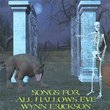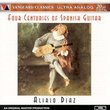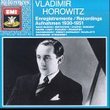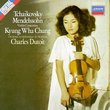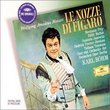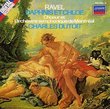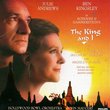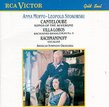| All Artists: John Hsu (Baryton), David Miller (Viola), Fortunato Arico (Cello) Title: Franz Joseph Haydn: Four Baryton Trios (Volume1) Members Wishing: 1 Total Copies: 0 Label: Gaudeamus Release Date: 7/25/2000 Genre: Classical Styles: Opera & Classical Vocal, Chamber Music, Historical Periods, Classical (c.1770-1830), Early Music, Instruments, Strings Number of Discs: 1 SwapaCD Credits: 1 UPC: 743625010428 |
Search - John Hsu (Baryton), David Miller (Viola), Fortunato Arico (Cello) :: Franz Joseph Haydn: Four Baryton Trios (Volume1)
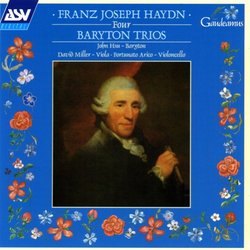 | John Hsu (Baryton), David Miller (Viola), Fortunato Arico (Cello) Franz Joseph Haydn: Four Baryton Trios (Volume1) Genre: Classical
|
Larger Image |
CD DetailsSimilar CDsSimilarly Requested CDs
|
CD ReviewsA Pioneer Recording by John Hsu Leslie Richford | Selsingen, Lower Saxony | 05/10/2008 (5 out of 5 stars) "Franz Joseph Haydn (1732 - 1809): Four Baryton Trios Vol. 1: Trio Nos. 97 in D major; 111 in G major; 87 in A minor; 101 in C major. Performed by John Hsu, barytone; David Miller, viola; Fortunato Arico, violoncello. Recorded in Sage Chapel, Cornell University, Ithaca, NY. (Recording date not given in inlay.) First published 1986 as ASV Gaudeamus GAU 104. A Musical Heritage Society Recording. Total playing time: 50 minutes.
This was the first of two CDs for the Gaudeaumus label that John Hsu recorded on a reconstructed baryton in the mid 1980s. The baryton was always a rather exotic instrument, even in the 18th century, and we owe Haydn's many compositions for it to the fact that his patron, Prince Esterhazy, loved to play it himself, although he can, judging by the quality of the music (which was fitted to his abilities), hardly be described as a virtuoso. The instrument is a combination of viola da gamba (bowed strings) and harp (plucked strings on the back of the instrument), but Haydn's comparatively simple music rarely makes use of all the possibilities, suggesting that Prince Esterhazy would not have been skilful enough to play both sets of strings at once, at least not more than occasionally. On the current CD, the plucked strings are heard now and then during the first two trios, but not at all during the last two. However, the engineers have made sure that the listener does hear the vibrating effect of the harp strings at the end of almost every movement. - It is a little difficult to evaluate John Hsu's performance because I don't know of any other recordings of this material or of this instrument, but I can say that I found listening to this CD to be highly entertaining, both for the slightly nasal sound of the instrument and for the quality of the music, which, although relatively simple, is never unworthy of the great name of Haydn. Hsu himself dominates the sonics most of the time, as Prince Esterhazy would have done at a soirée at his castle, with David Miller and Fortunato Arico playing along well but reticently. Anyone wanting to get to know this fascinating instrument should probably start here. In Europe, the CD has been missing from the catalogue for many years (I count myself fortunate to have still been able to obtain a copy), and the apparent take-over of Sanctuary Classics by Universal Music may mean that John Hsu's Haydn recordings for ASV Gaudeamus are soon consigned to history, so I would recommend grabbing this while you can." |

 Track Listings (14) - Disc #1
Track Listings (14) - Disc #1